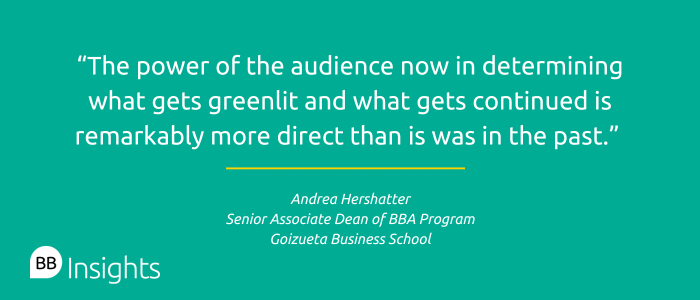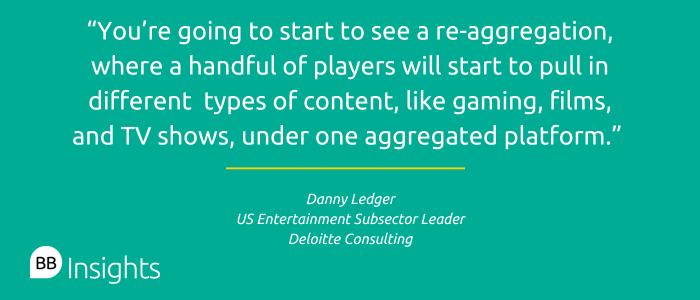People were already becoming homebodies before the pandemic forced everyone to stay inside. At-home entertainment, spurred by an ever-expanding array of streaming services and increasingly sophisticated TV set-ups, removed the need to leave the house.
According to Paul Hardart, director of the Entertainment, Media and Technology Program at New York University’s Stern School of Business, movie theater attendance was already plateauing before Covid.
Meanwhile, ticket prices have been rising, with the average ticket price in the US rising from $5.39 in 2000 to $9.16 in 2020 and again to $11.75 in 2022.
The pandemic only exacerbated the problem. When movie theaters closed due to lockdown orders, often being some of the last venues allowed to reopen during the temporary lifting of restrictions, movie studios turned towards streaming services to debut their films.
In December 2020, Warner Bros announced a deal with HBO Max to simultaneously release all blockbuster movies in 2021 on the streaming platform and in theaters.
The deal ended in 2022 as the company wanted to prioritize theatrical release once again. However, Warner Bros continues to try and innovate the streaming service recently releasing plans of a new combined streaming service, Max. This will combine the scripted entertainment of HBO Max, such as Succession, with Discovery’s library of reality and unscripted series, such as Fixer Upper.
This shows even with movie industry returned to normality, streaming services are looking to drive subscriber acquisition: Warner Bros. Discovery still has a subscriber goal for its streaming division — 130 million by 2025, up from the 96.1 million now
The future of cinema remains uncertain, filled with both challenges and opportunities for studios, theaters, media distributors, industry workers, and consumers.
What will the movie theater experience be post-pandemic?
Movie theaters are not yet on the verge of extinction. But to survive, they’ll need to adapt.

For Danny Ledger, US entertainment subsector leader for Deloitte Consulting, the key is to make a trip to the theater a unique, customized event for consumers.
“Theaters can reinvent themselves by thinking about how they can personalize experiences,” he says. That involves things like better food, more comfortable seats, and the possibility to privatize a room.
But sometimes that won’t be enough. If you’ve replicated a high-quality film watching experience at home, with a good sound system and large screen, it's going to be difficult for movie theaters to convince you that you need to go out and spend money on overpriced popcorn.
That’s where blockbusters come in. According to Danny, people want to see highly anticipated, high-budget films with exceptional special effects and globally beloved stars on a massive screen. Increasingly, theaters will specialize in those types of movies, while studios will prefer a streaming-only release for films that people have no incentive to leave their house for.
The one exception is likely to be for small, indie theaters whose business model doesn’t include blockbusters at all.
“There's still a place for people who want the communal experience, maybe followed by discussion groups or movie clubs. Some theaters can afford to have that niche market,” says Andrea Hershatter (pictured above, right), senior associate dean of the BBA program at Emory Goizueta, which offers a Film and Media Management concentration.
What does the 'Barbenheimer' buzz mean about the future of cinema?
We witnessed the power of anticipation, high-budgets, and beloved stars this summer. In July 2023, the public was blessed with two of the biggest movies of the year, Barbie, and Oppenheimer—‘Barbenheimer’—coming out on the same day.
A study in pink, Barbie, had the most famous doll in the world, played by Margot Robbie, questioning the meaning of life, and fighting against patriarchy, which Ken, Ryan Gosling, brings back to the female dominated Barbie land.
Oppenheimer tells the story of J. Robert Oppenheimer, Cillian Murphy, the lead of the Manhattan Project that created the first atom bomb. With stunning shots and sounds of the test of the first atom bomb, it is a prime example of the power of cinema.
The buzz surrounding the weekend of Barbenheimer shows how streaming could never replace theatrical moviegoing. There are various reasons for the excitement and box office success—Barbie has grossed over 600 million worldwide and Oppenheimer over 300 million—of these two movies, including the stellar casts and popular subject matters.
A major component of the success was the lengthy promotional campaigns for Barbie and Oppenheimer (the latter of which dropped a teaser a year before its debut) that turned these movies into events.
Plus, the very act of going out of the house with friends (rather than just being able to watch these films whenever you want on Netflix) informs the exciting event nature of experiencing Barbie and Oppenheimer.
The effort and anticipation people put into planning and seeing Barbenheimer, shows why the future of cinema may still be alive.
Is streaming profitable?
As movie theaters specialize in either blockbusters or niche indie experiences, the likelihood is the future of cinema will see a lot more movies being released via digital, direct-to-consumer distribution. For both studios and streaming services, the most important challenge is figuring out how to sustain a profit.
“What's happening is that you have really high customer acquisition costs, which tend to be about $200 per subscriber on average,” explains Danny. “If you think about the marketing that goes into acquiring those customers, the return on marketing more often than not does not actually meet that $200 spent.”
That’s due to ‘hit-and-run consumers’, consumers who sign up for one show or film only and never extend their free trial into a paid subscription. To mitigate this issue, streaming platforms try to keep their content library as fresh and exciting as possible to entice new customers to stay. But producing this content is expensive and doesn’t always work to retain viewers.
“Subscribers don't stay on the platform long enough to get back those high acquisition costs and high content costs,” Danny adds. “It's really hard to make a profitable business under this current model.”
To counteract this, streaming services need to use data-driven insights to learn about and shape consumer behavior.
“Using consumer data influences what gets produced, all the way from the creative ideation process in terms of what content, what types of ideas, stories, narratives we choose,” Danny says. “It starts here, and then it goes all the way through to the consumption and the story, where we get more data and insights about viewing behavior, patterns, preferences.
“We can use that to further enhance our decision making on what content we produce, how we make that available and then how we price and distribute it,” he adds. “I think data has a role in every aspect of the supply chain.”

Increasing diversity in the movie business
The attention paid to consumer data means that, indirectly, subscribers have a say in the kind of content that gets made.

“The power of the audience now in determining what gets greenlit and what gets continued is remarkably more direct than it was in the past,” Andrea from Goizueta says. “Before, you would wait for numbers and then a handful of white men would gather in a room and determine what the next thing they were going to pay for would be.”
Now that decision-making is shared, even indirectly, diversity improves. “There’s now more representative actors, more representative writers, and producers to an audience that is as diverse as they are,” says Nsenga Burton, co-director of the Film and Media Management concentration on the BBA program at Emory Goizueta.
This means more opportunities for people working in the industry, but also greater open-mindedness on the part of the consumer.
“People are getting exposed to remarkable content from around the world that five,10, 15 years ago, there’s no way they would have watched,” Paul (pictured) points out. “I'm hopeful that it’s engendering empathy, and an understanding of different cultures.”
New channels for storytelling
Digital distribution models also create the opportunity to merge different channels and mediums of storytelling on one platform, as Warner Bros Discovery has done.

“If we rewind back in the history of time, the reason why cable TV existed was because we as consumers want one place to go for content,” Danny from Deloitte (pictured right) explains.
“Now we're in a world where we have multiple streaming services all stacked up with multiple options, content, and multiple bills. I think you're going to start to see a re-aggregation, where a handful of players will start to pull in different types of content, like gaming, films, and TV shows, under one aggregated platform.”
Netflix is pushing plans to invest into gaming, a sign of movements in the industry that may become more common. However, it’s been nearly two years since Netflix first announced its foray into gaming.
Yet, as Netflix has more than tripled its game library from 24 to 77 games in the last year, less than 1% of subscribers play a Netflix game on a daily basis.
While integrating gaming into a film franchise or creating an immersive movie experience in a driverless car, show the storytelling possibilities for entertainment afforded by new technologies are endless, this does no necessarily mean it will be successful.
The outright success of Barbie and Oppenheimer shows how a more traditional approach to entertainment can be highly effective.

How will all of this change the movie business?
The integration of new technology into the movie business will be a welcome development for those with relevant skills. As Andrea from Goizueta puts it, “more content and more formats means more jobs.
“People who have CGI expertise working in gaming can go down the road and all of a sudden work on a movie,” she adds. “That creates new exciting possibilities for cross-collaboration.”
However, Paul warns about the threat that streaming services may pose to the creative community through ‘cost-plus’ contracts, where companies pay their creatives what they would have made upfront, plus a bonus.
“For now, the cost-plus approach is appealing because all talent is getting paid a little more.
“That said, in time, it seems inevitable that the streamers will be the main gatekeepers of distribution and will thus have the leverage to reduce the amount they pay for content,” Paul explains.
The bonus, which may have started at 20%, may go down to 19%, 18%, even 15% in the future. “Big name producers and stars will still be able to command larger fees, but the vast majority of content creators will most likely begin to get squeezed,” he adds.
Although he is concerned about possible consequences for people working in the industry, as well as the ways in which streaming services will change the kinds of movies that get made, Paul is still hopeful about the future of cinema. “There’s disappointment in seeing an art form change, there’s a certain sadness, but I think it's an inevitable step in a new direction.”
A great deal of uncertainty remains around how digital, direct-to-consumer distribution will change the way we consume and produce entertainment. The varied and long-lasting effects of the pandemic on film distribution models cannot be neatly erased, pointing to both negative and positive developments.
While issues around making streaming profitable and ensuring that part of this profit gets into the pockets of the creative community have still not been adequately addressed, digital distribution may also signify greater content diversity, better access to the industry for a wide range of voices, and brand-new forms of storytelling.
Change is already well underway, the main challenge now is to make sure it can work for everyone.
Next Read:
What Are The Challenges Of Artificial Intelligence In Business?
BB Insights explores the latest research and trends from the business school classroom, drawing on the expertise of world-leading professors to inspire and inform current and future leaders



